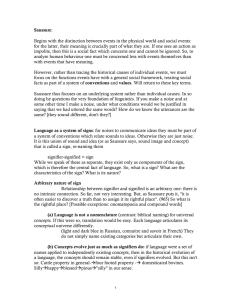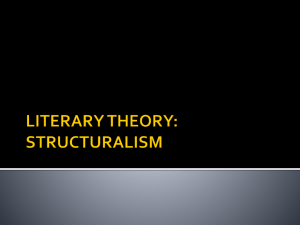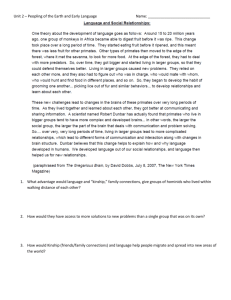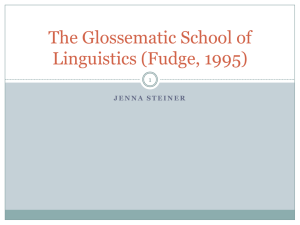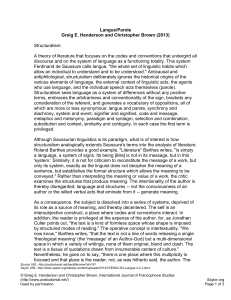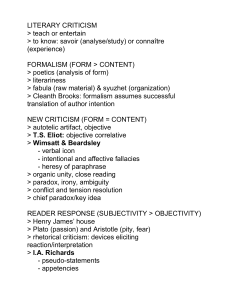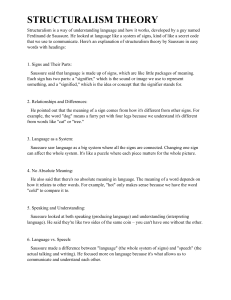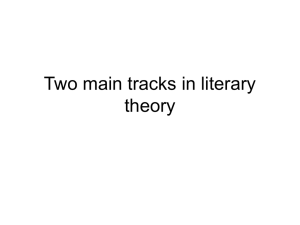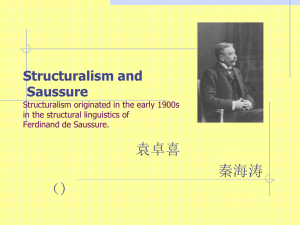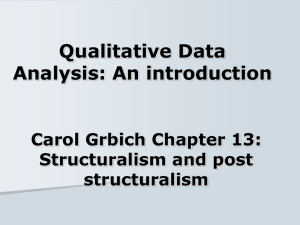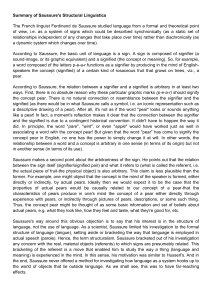Superfluous Genealogy: John Locke. George Berkeley, David Hume
advertisement
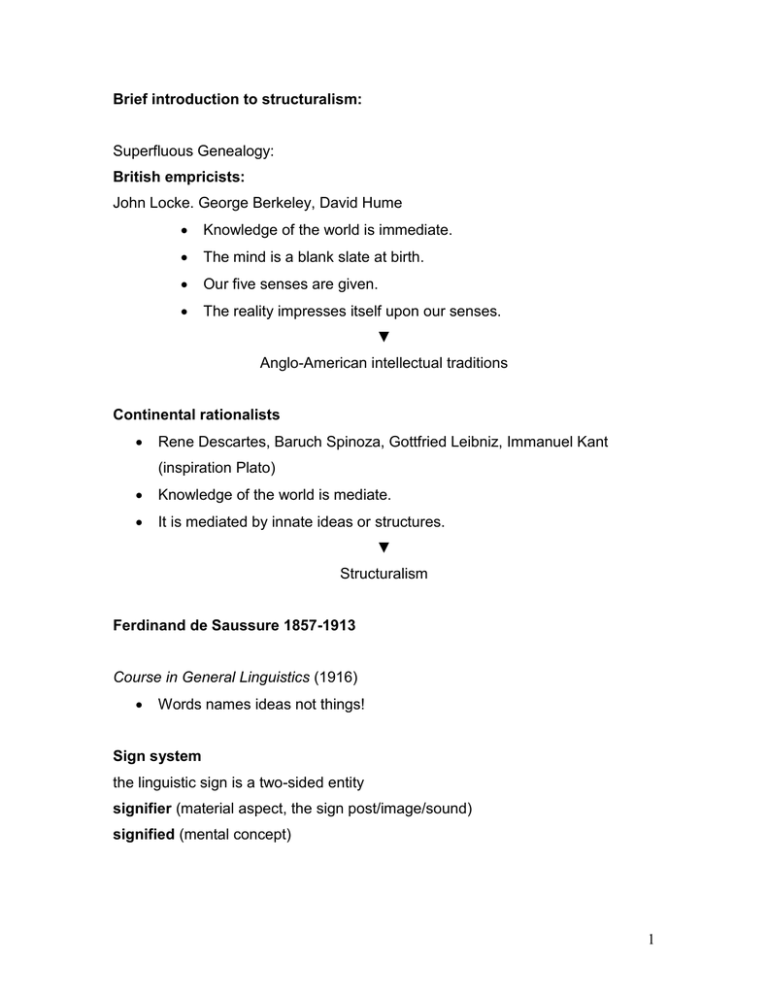
Brief introduction to structuralism: Superfluous Genealogy: British empricists: John Locke. George Berkeley, David Hume Knowledge of the world is immediate. The mind is a blank slate at birth. Our five senses are given. The reality impresses itself upon our senses. ▼ Anglo-American intellectual traditions Continental rationalists Rene Descartes, Baruch Spinoza, Gottfried Leibniz, Immanuel Kant (inspiration Plato) Knowledge of the world is mediate. It is mediated by innate ideas or structures. ▼ Structuralism Ferdinand de Saussure 1857-1913 Course in General Linguistics (1916) Words names ideas not things! Sign system the linguistic sign is a two-sided entity signifier (material aspect, the sign post/image/sound) signified (mental concept) 1 Dog Signifiers "d", "o", "g" What do we hear? The mental concept of dogness) Saussure studied la langue (the system of signs, a system of difference between signs), not la parole (the spoken word, individual acts of speech), signs not diachronically but synchronically synchrony: signifiers (roughly, words) versus signifieds (corresponding mental images). signifier analyzed formally. Language can be seen as a system paradigmatic and Syntagmatic negative relations of difference. The bear eats dog smells its moose hits honey. master. mate. The horizontal substitutions are syntagmatic. The vertical substitutions are paradigmatic. Meaning is possible because one thing can signify another. Language cannot be interfered by individuals. 2 Once its established a sign cannot be changed by an individual. Claude Lévi-Strauss (b.1908) Lacks a sustained period of time fieldwork in 1935-39 taught in Sāo-Paolo in Brazil has short periods of field trips among several peoples of Amazon region was in USA during the WW2 His 1947 doctoral dissertation The Elementary Structures of Kinship as a book (1949) was very influenced kinship studies Structuralism attempts to comprehend the general qualities of meaningful systems. A kinship system is meaningful as it is made up of relationships (e.g. father is a father only in relationship to his children). Meaningful systems as structure of contrasts helps to "deal with the flow of time". Functionalists try to explain social phenomena by finding hidden utilitarian form. Some forms of behaviour have no utility Their utility is revealed only when they are related negatively to other social phenomena in the same culture system (signifiers). L-S searched for universals at the level of structure but truths are camouflaged at the level of observable fact unless one knows how to decode those facts. 3 Define the phenomenon. Construct the table of permutations This table should be the object of analysis. It shows the possible connections. One relation is only one among other possible ones. What we do is to create certain combinations now absolutely new ones. What Saussure said "individuals cannot change the sign. We operate in the already established system. The linguistic units (parole) can be organized in newer ways but not the underlying basic structure (langue). Implications in crude words: Nothing is really new. What individuals and societies as collectivities do is to create certain combination. therefore As argued in La pensée sauvage (not "The savage mind" but Thinking in the raw) notions of primitive thinking/pre-logical thinking are problematic. Primitive belongs to the "higher order" and vice versa. Universal logic is applied to resolve the problems humanity faces in nature. The classificatory categories of all people's are based on the recognition of opposites, contrasts and similarities. They reveal a mastery of the immediate sensory qualities of the world and anintuitive capacity for detecting analogues within combinations of sounds, colours, tastes, odors, and tactile qualities found in nature. 4 Lévi-Straus History and Dialectic (The Savage Mind 1962) Main argument: "Historical knowledge has no claim to be opposed to other forms of knowledge as a supremely privileged one" (263). His issue with Sartre: Sartre is ethnocentric because of his existentialism and his definition of man (who is self experiencing and defined against an other). 'history is a discontinuous set composed of domains of history, each of which is defined by a characteristic frequency and by a differential coding of before and after' (259-260). istory is always partial and serves a purpose therefore History is therefore never history, but 'history-for'. 5
